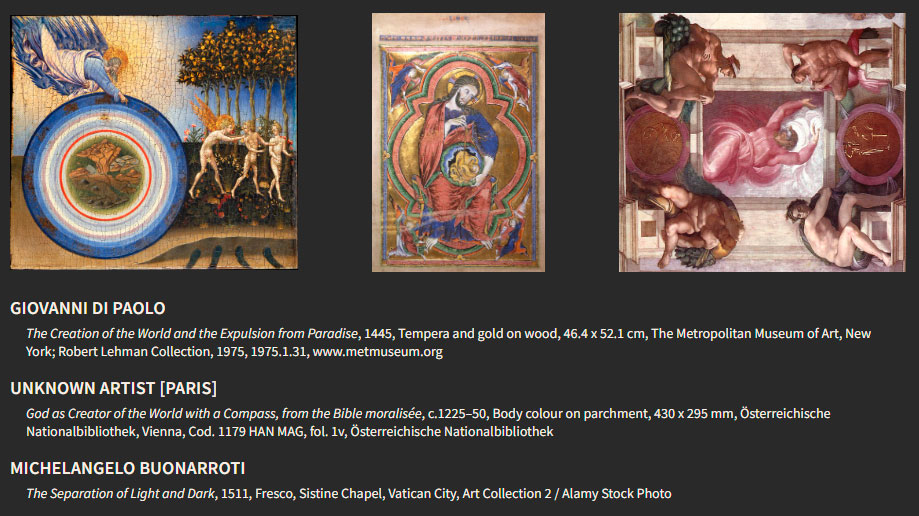I.Theme – Creation and Trinity meet in Worship

"The Trinity" – Hermano Leon
The lectionary readings are here or individually:
Old Testament – Genesis 1:1-2:4a
Psalm – Psalm 8 Page 592, BCP
Epistle –2 Corinthians 13:11-13
Gospel – Matthew 28:16-20
The week is seemingly about beginnings and end – creation in the Old Testament and the Trinity in the New Testament. The Epistle and Gospel are the concluding verses in the 2nd Corinthians and Matthew.
The key concept that bring creation and Trinity is worship. The Gospel emphasis is on the disciples worshipping the risen Lord and spreading His teachings. The creation stories describe God worthy of worship.
Furthermore this is for us a time of transition as we move into Ordinary Time. Our liturgical calendar is top-heavy in that all of the major seasons and holy days of the church happen in the first half of the church year which begins on the first Sunday of Advent. The second half of the year is rather quiet. It is a time to go deeper into the life of Jesus and the great stories of the Old Testament
Both of the Old Testament readings for this day look at the work of the Creator, in the first account of Creation found in Genesis, and more specifically at the creation of humankind in Psalm 8, our purpose and our role. Both Psalm 8 and Genesis 1 explain the role of humanity to have dominion over the creatures of the earth, and both suggest that this dominion is given by the same God who has dominion over us. The understanding of stewardship and care is explicit in this understanding of having dominion.
Both of these passages also suggest that God is in relationship in a divine sense. In Genesis, God says, “Let us make humankind in our image.” In Psalm 8:5, the psalmist sings, “Yet you have made them [human beings] a little lower than God.”
As God is in relationship with us, we are created in the image of God: in the image of relationship. We were created to be in relationship with one another because this is the image of the Divine: God is in relationship. Jesus made this clear, especially in John’s Gospel, in referring to God as “Abba, Father.”
We know that breath, wind and spirit are the same words in Hebrew as in the Greek–we have experienced the wind from God that swept over the waters in the second verse of the Bible as the Holy Spirit, moving through the house on the day of Pentecost in Acts 2 like the rush of a violent wind, breathing on the disciples from Jesus the night after his resurrection in John 20.
The concept of the Trinity is hard to find in the Bible. The two New Testament passages this week are among the very few that mention all three: God the Creator (Father/Mother of us all), Christ the Son (Savior, Redeemer and Messiah), and the Holy Spirit (or Holy Ghost). The Trinity as a doctrine came later in the life of the church, as did most of our doctrines and core theological beliefs.
For Trinity Sunday, we recognize and celebrate the mystery of God’s relationship with God’s self, and the mystery of our own relationship with God, created a little lower than God/Angels/Divine Beings and recognize our relationship with God, all of humanity, and creation as shared in Genesis 1 and Psalm 8. And we recognize our own calling by this Triune God through the person of Jesus Christ in our commission to the world in Matthew 28.
Some of us have our doubts, even about the mystery of the Trinity, but we all are called by the same Jesus to “Go therefore and make disciples of all nations, baptizing them in the name of the Father and of the Son and of the Holy Spirit.” This is our call–to make disciples in the names of all Three in One. Holy, holy, holy. God in Three Persons, blessed Trinity. We are comforted by Jesus last remark “And remember, I am with you always, to the end of the age."
On this Father’s Day, we celebrate the Trinity, and we also can celebrate the relationship Jesus had with God, one in which Jesus called God Abba, Father.
Read more



